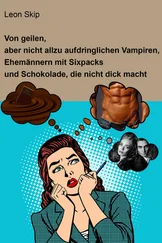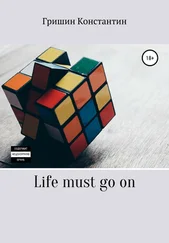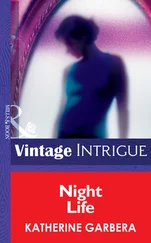We walked the beach at Vogler’s Cove for half an hour or so. “By now, can you name all the birds we’re looking at, Sam?” Cynthia asked. “What with your field guide always with you.”
“The gulls, some of the ducks, a few others,” I said. “Slow learner.”
Then we drove back, radio on, no need to talk.
IT’S ALL CATCHING up to me. The night before the day Elizabeth was murdered, we were lying in bed and she told me about her visit with Marghanita Laski. We had made love so intensely, it made us both laugh and cry. (“Sam, do you think just now we were trying to make a baby? I don’t know for sure, but that felt more than just husband and wife.”) Lying there, we suddenly had a ravenous thirst, and I got up and brought a pitcher of water to the bed, and we each drank directly from the pitcher. She said, “I’m for some mysterious reason having memories left and right. It’s like they’ve invited themselves in without knocking and got into bed with us.”
“Of what, exactly?”
She drank some more water. “Okay, well, in London. I stayed at an expensive hotel in London one time. Only once in my life, on my own, and it was far too expensive for me. But I was so nervous, I had to have some kind of comfort. I think that was my excuse.”
“Nervous about?” I couldn’t imagine what I was about to hear, and in fact didn’t hear it for some time, because instead of answering, Elizabeth began to kiss me, deep, probing, urgent kisses, and for me not to respond was impossible. I knew a good thing when I felt it, and with Lizzy I had felt it from the moment we’d first met. Now we were in the throes of passion again, and I didn’t try to understand it. Afterward, we slept for a while, then Elizabeth woke me and picked up where she’d left off, telling me about her visit to London.
“I’d written that letter to Marghanita Laski.”
“I remember you told me you’d sent her a letter.”
“And the letter said that I loved The Victorian Chaise-Longue, and was writing my dissertation on it, and could I ask her some questions about its composition. That was pretty much it. And she sent me an invitation to come see her. I was so excited. I wrote her right back and suggested some possible dates, and in her next letter she agreed on January — this was the year before you and I met. I’ve kept her letters, of course. I have them here.” She reached into the drawer of her bedside table and produced a folded letter, and she read from it:
London is freezing in January. I won’t apologize for that, but will for its being the only plausible time, I’m afraid, for your visit. By the way, you used the word “audience,” that you hoped for an audience with me, but you’ll perhaps be disappointed to know that I live a simple, quiet life, out of the literary limelight to be sure. No audience necessary, just let’s say tea out at a hotel. And yes, you may ask me anything you want, within bounds, and I’ll do my best to answer.
Elizabeth put the letter back in the drawer. “I borrowed airfare from Mum and Dad,” she said. “They were very sweet about it. Also, they popped for the too expensive hotel. And they suggested I travel up from London to Wales for a visit. Which I did.
“And guess what? When Marghanita Laski herself came to my hotel for tea that first time — we met four times in four days — she noticed everything. She said, ‘Sorry to put it as such, but there’s a discrepancy between how modestly, yet quite tastefully, you’re dressed and what I imagine this hotel costs per night. And you’re probably staying for several nights.’ That was all she said about that, but she had sized it up perfectly. And that’s where we met all four times, right there, in a kind of pub just off the lobby of my hotel.
“She was so elegant, so beautiful. Very tired-looking, though. I think she’d been ill recently. She made some reference to that, some hint of it. But the great thing was, she didn’t think my questions were stupid. She took each question to heart. At least that’s how it felt. She mentioned she was doing some work for the Oxford English Dictionary. ‘I quite enjoy it,’ she said. And this was embarrassing — she picked up on me staring at her at one point. Like I was trying to memorize her appearance or something. And that’s when she said, ‘Sizing a new person up in midconversation is an odd business, don’t you think? Friends tell me I’m quite obvious about it myself.’ I was pretty embarrassed.
“But the thing is, Sam, it changed me. Just the chance to talk in person with her changed me. It made The Victorian Chaise-Longue mean even more. She was so forthright. In fact, she told me she’d done very few interviews. ‘Nobody of late is really interested, you see.’ I mean, there was Marghanita Laski in the flesh. I flew back to Halifax full to bursting with ideas.”
We talked about her meetings with Marghanita Laski for a long time. We got very little sleep. And because she left the hotel so early in the morning, we didn’t even have breakfast together. So Lizzy’s visit to London turned out to be the subject of our last conversation together. In the Essex Hotel, that is.
Who Ever Said You Were Supposed to Be Happy?
With Dr. Nissensen, July 25, 1973:
Late in today’s session, I read Dr. Nissensen the list of books that were missing from the Port Medway Library. “A child’s reading,” he said. “All the titles connected to Wales. Let me give that some thought.” I told him I’d ordered new copies through John W. Doull Booksellers.
“Why would you feel obligated to replace the books?” He paused. “Good citizenship alone?”
I allowed three or four minutes to pass in silence. “Dr. Nissensen,” I finally said, “I’ve given it a lot of thought, and I’d like to end our work together. I don’t want to drive into the city anymore. I need to be away from Halifax, I’m thinking for at least a year.”
He took some notes, closed the notebook. He removed his glasses and cleaned them with a handkerchief. “It’s called terminating,” he said. “In my parlance.”
“Does that mean stopping?”
“It means you no longer come to my office. However, as to the things we’ve discussed, I hope they continue to be part of your thinking.”
“Does my terminating surprise you?”
“Truthfully, not in the least. You’ve been drifting off in our sessions. They’ve lost some focus for you. In a year, God willing, I’ll still be here. Should that be of interest to you, Sam.”
Silence.
“Is one of the reasons you want to terminate that you finally feel you will never convince me?”
“I suppose so.”
“In our time together, I’ve deepened my understanding of the extent to which you are capable of maintaining Elizabeth’s presence. Your wife being the organizing principle of your grief-filled imagination. But convince me she’s other than that? You are correct — it’s unlikely to happen.”
“Elizabeth is my wife. She is the love of my life. She is not an organizing principle of anything.”
There were again a few moments of silence.
“I’ve come to enjoy the silences between us so much,” I said. “Maybe I’m terminating because then I can enjoy them all the time.”
“Lately,” Dr. Nissensen said, “I’ve been reading Emily Dickinson. She said, ‘After great pain, a formal feeling comes.’ It may be a statement about grief, about what comes after an important loss. I wonder if by ‘formal feeling’ she means a peaceful clarity. Perhaps a clarity that allows peacefulness of heart. Perhaps coming to peace with the realization that mortality cannot always be explained. Perhaps I’m looking for a whole theology encapsulated in just one line of poetry. I don’t know.”
Читать дальше












